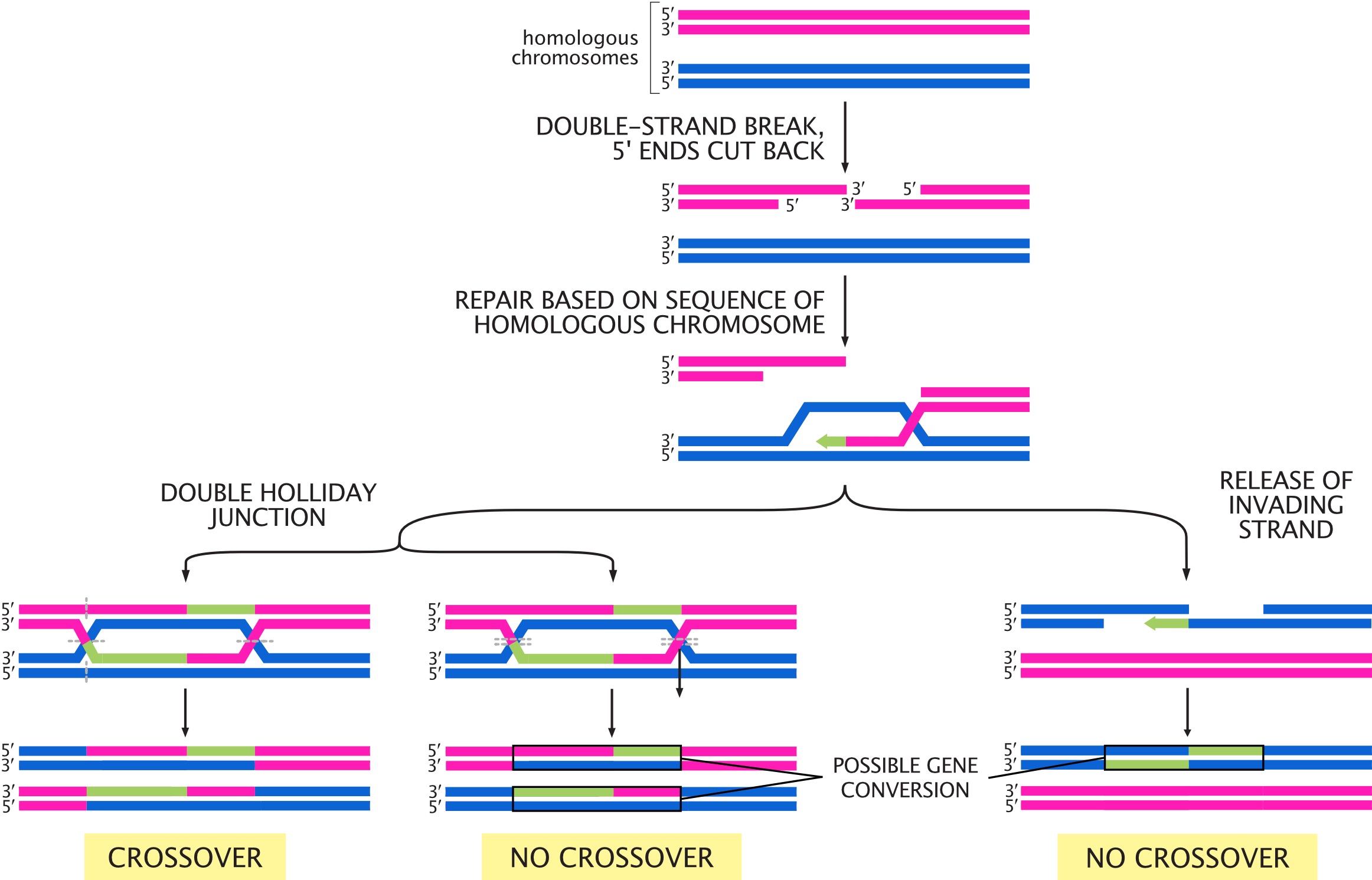3.2 Recombination
Crossovers, or meiotic recombination, occur during prophase of meiosis I, when homologous chromosomes pair with each other. Double-strand breaks are deliberately generated in the DNA, and are then cut back and repaired based on the sequence of the homologous chromosome. These repairs can sometimes resolve in a crossover event, where sections of DNA are swapped between chromosomes.
Because the sequences of homologous chromosomes differ at sites where they carry different alleles, recombination generates genetic diversity by creating new haplotypes, or combinations of alleles.
Crossovers are required for meiosis in most organisms because they ensure proper homologous chromosome pairing and segregation. Humans experience 1-4 crossover events per chromosome, with longer chromosomes having more crossovers.
